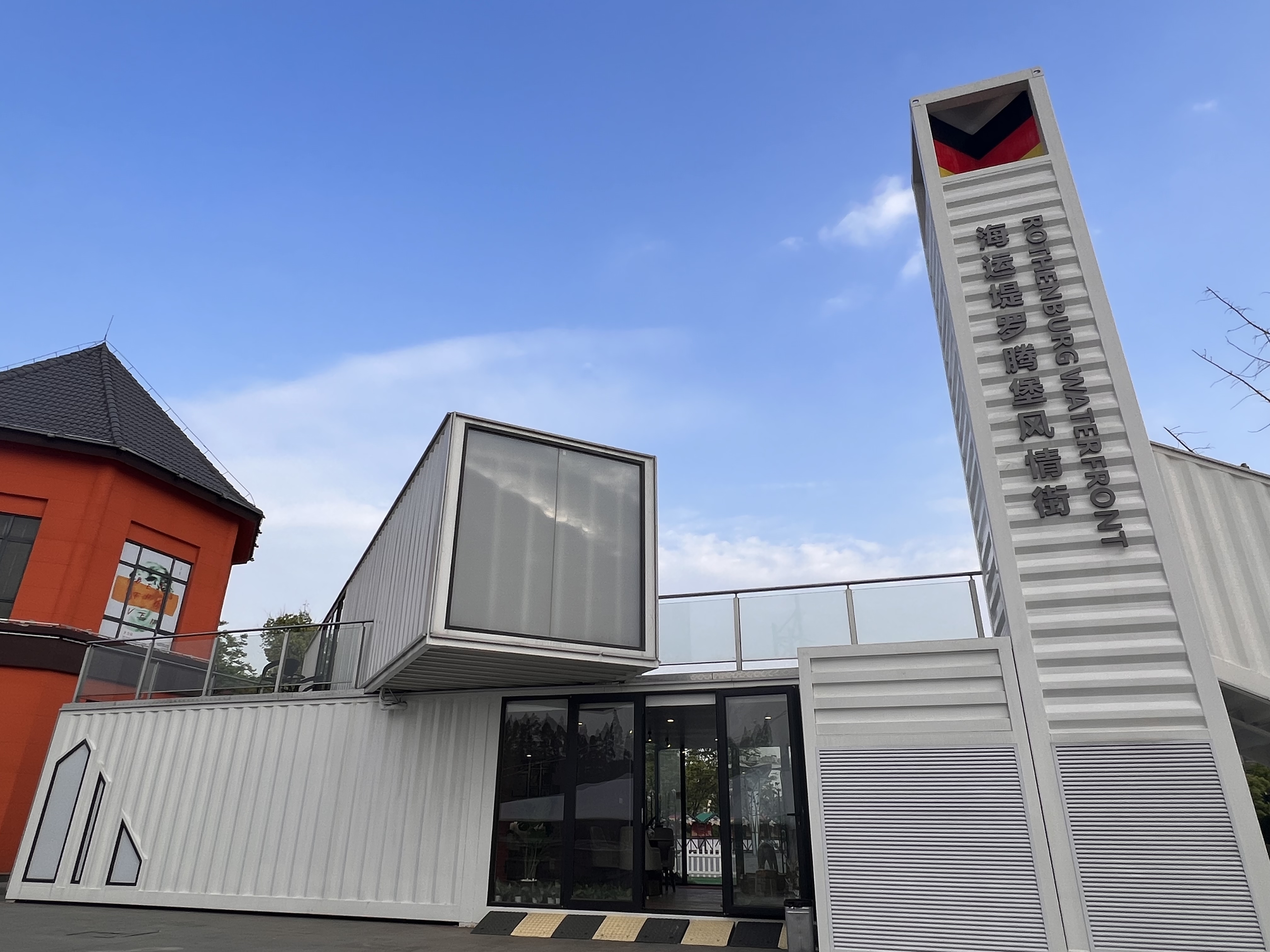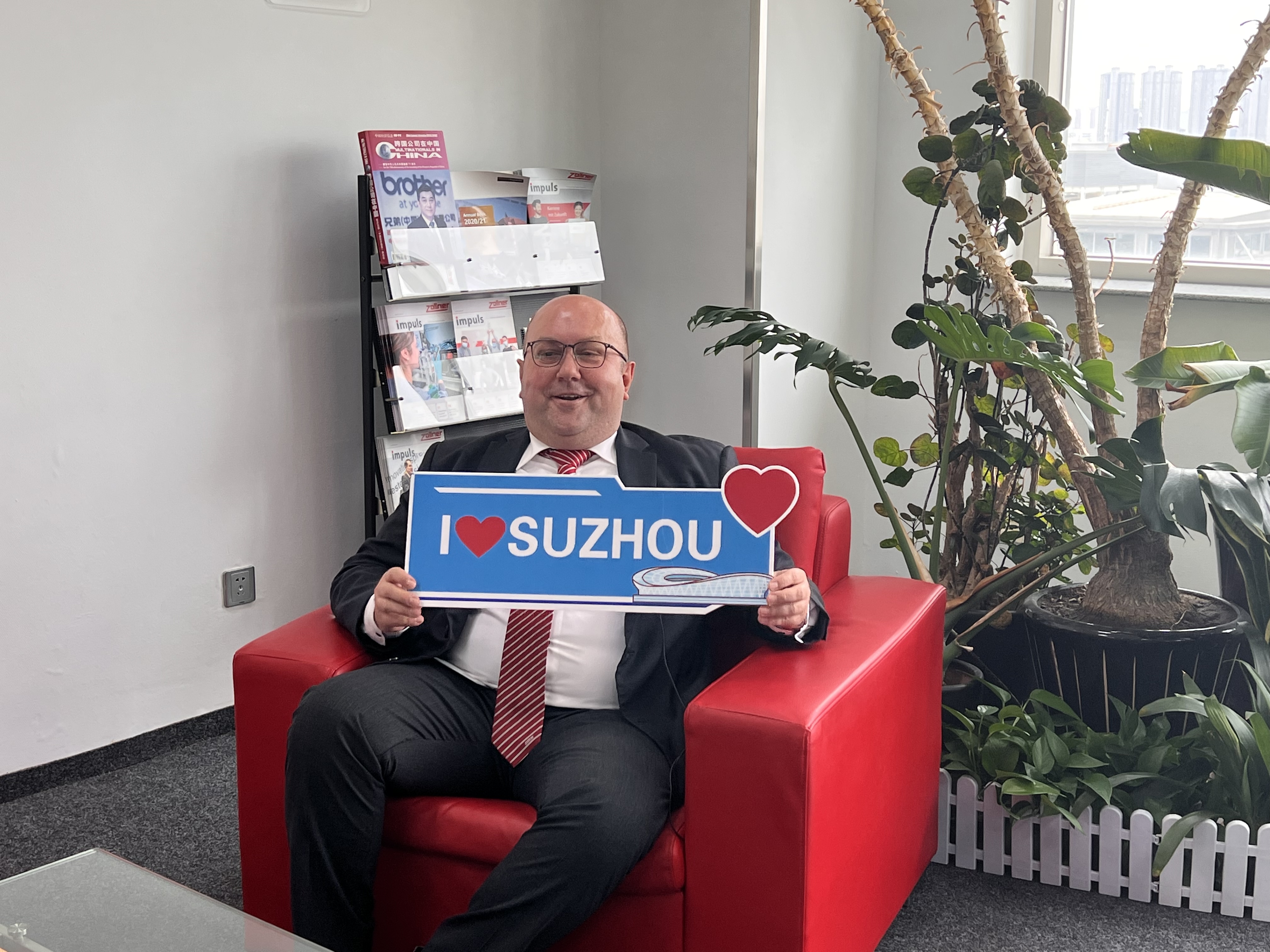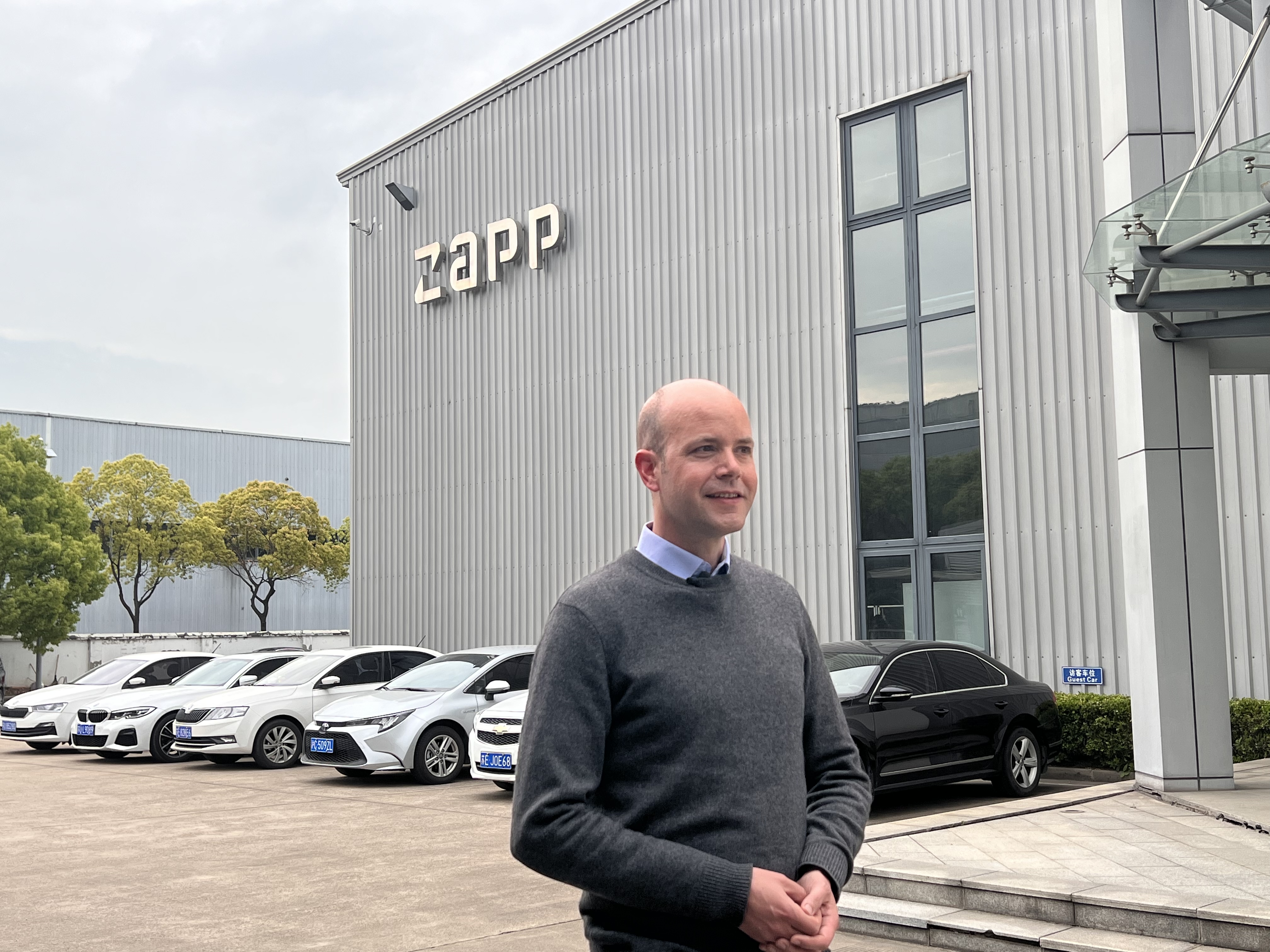Small City Witnesses Broad Sino-German Cooperation

The Rothenburg WaterFront, a German style street. (PHOTO: S&T Daily/WANG Xiaoxia)
By WANG Xiaoxia
Taicang is probably better known in Germany than in China, said Shi Mingde, president of the China-Germany Friendship Association and former Chinese Ambassador to Germany.
That's true. Taicang, a small county-level city located in Suzhou, east China's Jiangsu province, is honored as "the hometown of German enterprises." Since 1993 when Kern Liebers was the first German company settled in Taicang, there are more than 480 German companies. Thirty years on, fruitful results have been yielded in high-end industry cooperation, sci-tech innovation and cultural exchanges.
Advanced manufacturing cluster
Driven by innovation, German companies in Taicang have built the advanced manufacture industrial cluster and realized high-quality development in the fields of such as automobile, aerospace and machine tools. The cumulative use of German investment exceeded 6 billion USD in Taicang. With 0.24 percent of the land use, German enterprises have contributed 8 percent of the city's GDP.

Viktor Ungemach, general manager of Zollner Electronic (Taicang) Co., Ltd. (PHOTO: S&T Daily/WANG Xiaoxia)
Although the concept of Industry 4.0 was proposed by Germany, it is implemented here in Taicang through localization, according to Viktor Ungemach, general manager of Zollner Electronic (Taicang). The company performed well in China's high speed railway project and then manufactured traction and brake systems exclusively for China's Fuxing bullet train.
Zollner, an electronic manufacturing services provider with its headquarters based in Bavaria, Germany, set up the Zollner Electronic (Taicang) Co., Ltd. in 2004, and achieved rapid growth in China thanks to the favorable policies, generous subsidies and the huge market. The annual output of Zollner Taicang accounts for around 10 percent of Zollner's total, and 80 percent of the products made in Taicang are sold to Chinese consumers.
Two-way cooperation
Taicang emphasizes two -way cooperation in scientific and technological innovation. On one hand, it encourages German universities, institutions, and high-tech enterprises to establish branches in the city. According to local sci-tech authorities, more than 95 percent of German enterprises above designated size in Taicang have carried out R&D or localized application of technologies, with an annual R&D investment of nearly 1 billion RMB in total.
On the other hand, local enterprises go to Germany to carry out joint sci-tech innovation projects and construct innovation incubators. Taicang has built offshore innovation centers in Berlin and Aachen, Germany, and introduced research institutes such as Fraunhofer to accelerate the transformation of advanced technologies in Germany.
In Taicang, enterprises have carried out in-depth cooperation with domestic research institutes, and increased personnel exchanges between China and Germany. The "Zheng He Cup" Sino-German Youth Innovation and Entrepreneurship Competition has been held for six consecutive years, forming a global collaborative innovation system of "local + enclave + offshore." In 2013, China's Ministry of Science and Technology awarded Taicang the title of National Advanced Manufacturing Technology International Innovation Park.
Deep integration
To meet the increasing demand of advanced manufacturing industry for more capable workforce, Taicang has explored the dual system for vocational education, covering the whole system of secondary vocational schools, higher vocational colleges and undergraduate students.

Christian Kalkbrenner, CFO of ZAPP in Taicang. (PHOTO: S&T Daily/WANG Xiaoxia)
"Germany has a special system for the education of the technicians and can share its experience with China through the dual education system. Apart from theoretical education in the school, the trainees can learn skills in the company. After three years, they really have a good knowledge about their job and then can start as a full-time employee," said Christian Kalkbrenner, CFO of ZAPP in Taicang, a German company that plays a leading role in the technology of high-performance materials and high-precision cold forming.
Since the first German enterprise technician training center in China was settled in Taicang, to date, Taicang has become the largest "German vocational qualification" examination and training base in China and founded the first AHK college and dual-system research institute.
As the "hometown of German enterprises," Taicang integrates German elements into urban development and construction. It has held 17 consecutive "Oktoberfest," sports activities such as Sino-German table tennis friendly match, football league and New Year concert every year. There are German-style bars and bakeries, Sino-German friendship kindergarten and FC Bayern Football School. The Rothenburg WaterFront, a German style street, has become a popular destination for people to spend their leisure time.


